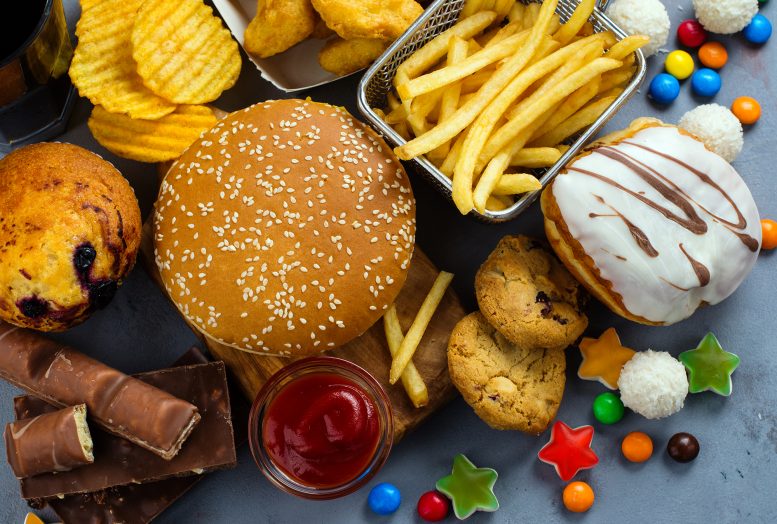does eating junk food affect muscle growth Food musclehack bodybuilding
 Warning: High-Fat Diets Affect Your Brain, Not Just Your Body
Warning: High-Fat Diets Affect Your Brain, Not Just Your Body
We all know the saying, “you are what you eat,” and it turns out there might be more truth to it than we realize. A recent study has found that high-fat diets not only affect our bodies but can also have a significant impact on our brains. Yes, you read that right – what you eat can influence your brain health and function.
The study, conducted by a team of researchers, discovered that consuming excessive amounts of unhealthy fats can lead to cognitive decline. The brain is a complex organ that requires a balance of nutrients to function optimally. When we indulge in junk food and other high-fat options, we disrupt this balance and put ourselves at risk.
But why does this happen? It all comes down to inflammation. Unhealthy fats can cause inflammation throughout the body, including the brain. This inflammation damages brain cells and impairs their ability to communicate with each other effectively. Over time, this can lead to memory loss, decreased cognitive abilities, and even an increased risk of neurodegenerative diseases such as Alzheimer’s.
 Bodybuilding & Food | MuscleHack by Mark McManus
Bodybuilding & Food | MuscleHack by Mark McManus
Switching gears from brain health to bodybuilding, let’s talk about the essential role that food plays in muscle growth. When it comes to building a well-defined and muscular physique, exercise alone is not enough. Your diet plays a crucial role in fueling your workouts, aiding in muscle recovery, and promoting muscle growth.
While exercise stimulates muscle growth, it is the nutrients from food that provide the building blocks for muscle repair and growth. Proteins, in particular, play a vital role in this process. They provide the necessary amino acids that are used to rebuild and strengthen muscle tissue after intense workouts. Without an adequate intake of protein, your muscles won’t have the necessary resources to repair and grow, regardless of how hard you train.
But it’s not just protein that matters. A well-rounded diet that includes a balance of carbohydrates, healthy fats, and micronutrients is equally important. Carbohydrates are the primary source of energy during exercise and help replenish glycogen stores, which are essential for sustained workouts. Healthy fats, such as those found in fish, nuts, and avocados, provide essential fatty acids that support hormone production and overall health.
In conclusion, what we put into our bodies has a profound impact not only on our physical health but also on our cognitive function. By opting for a balanced diet that includes a variety of whole foods, we can support both our brain and body. So, the next time you make a food choice, remember that you are not only nourishing yourself but also your mind and muscles. Make choices that promote overall health and well-being!
If you are looking for These Fast Food Disturbing Truths Can Change Your Eating Habits - Wikye you’ve visit to the right place. We have 5 Pics about These Fast Food Disturbing Truths Can Change Your Eating Habits - Wikye like Pin by Ruslan Albegov on FollowFast | Food, Processed food, Effects of, How Often Should I Eat to Gain Muscle? – Wellneos and also These Fast Food Disturbing Truths Can Change Your Eating Habits - Wikye. Read more:
These Fast Food Disturbing Truths Can Change Your Eating Habits - Wikye
 www.wikye.comjunk affects truths wikye disturbing
www.wikye.comjunk affects truths wikye disturbing
Pin By Ruslan Albegov On FollowFast | Food, Processed Food, Effects Of
 www.pinterest.comunhealthy alimenti industriali publishes adverts housekeeping detox healthday scelta affect sano 123rf
www.pinterest.comunhealthy alimenti industriali publishes adverts housekeeping detox healthday scelta affect sano 123rf
How Often Should I Eat To Gain Muscle? – Wellneos
 wellneos.comeat
wellneos.comeat
Bodybuilding & Food | MuscleHack By Mark McManus
 www.musclehack.comfood musclehack bodybuilding
www.musclehack.comfood musclehack bodybuilding
Warning: High-Fat Diets Affect Your Brain, Not Just Your Body
 scitechdaily.comfat food junk high diets unhealthy diet affect warning brain body just
scitechdaily.comfat food junk high diets unhealthy diet affect warning brain body just
Pin by ruslan albegov on followfast. How often should i eat to gain muscle? – wellneos. These fast food disturbing truths can change your eating habits